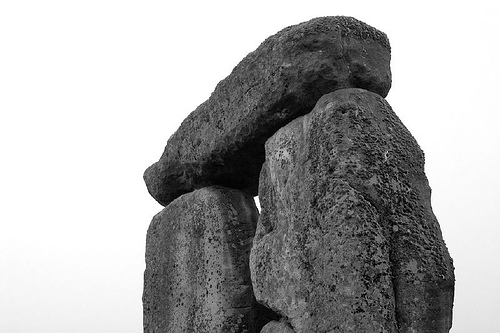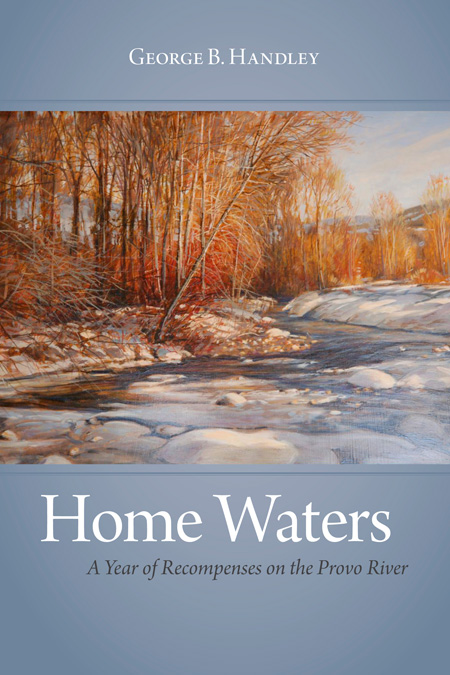Author: Adam Miller
-
A Primer on Mormon Prayer: Aligning
What exactly is it that you are trying to practice when you practice prayer? In particular, what exactly is it that you are trying to practice when you practice prayer as an end in itself rather than as a means to some other end? I take two things as axiomatic with respect to the practice of prayer.
-
A Primer on Mormon Prayer: Deciding
Prayer can be approached as a means or as an end. You’re tired of using God as a crutch to get wherever else you want to go and finally decide, throwing it all over, to just make God your explicit destination. Consecration it is. The kingdom of God or nothing.
-
A Primer on Mormon Prayer: Abiding
You know the feeling: you’re hungry for God. Your soul, restless, can find no rest. Your pillow’s warm on both sides.
-
A Primer on Mormon Prayer
A religious life is a life of prayer. Don’t skimp on this or, no matter how white your sepulcher, your insides will always just be full of dry bones.
-
Some Articles of Faith
Some (Wednesday morning) articles of faith: 1. The gospel is terrifyingly simple: Give up!
-
Faith, Philosophy, Scripture: Breathing
One last post about Jim Faulconer’s Faith, Philosophy, Scripture (Maxwell Institute, 2010). The final chapter is entitled “Breathing” and is a meditation on Romans 8.
-
Faith, Philosophy, Scripture: Saying vs. Said
There are persons and there are principles. The gospel is about the former rather than the latter. Granted, there are gospel principles – but the sabbath was made for man, not man for the sabbath.
-
Faith, Philosophy, Scripture: Literally
Ironically, the trouble with biblical literalism is that it doesn’t take the word “literal” literally.
-
Faith, Philosophy, Scripture: Reading Zion
Zion is the world ajar. Zion is the world set on a double hinge. God gives a push, the door goes swinging, and the world opens wide.
-

Rivers of Living Water
It’s Easter and I, like Mary, have a hard time seeing what’s right in front of me.
-
Be Ye Perfect
The gospel instructs us in a certain way of being imperfect. Here, salvation turns on practicing what Elizabeth Bishop calls “the art of losing.” Jesus famously describes this art of losing in Matthew 5:48. “Be ye therefore perfect,” he says, “even as your Father which is in heaven is perfect.” Here, the term “perfection” indexes…
-
Faith, Philosophy, Scripture: Apocalyptic Theology
Imagine I’ve just been made supreme chancellor of a graduate program in Mormon theology. Thousands of students throng. We need a syllabus. What’s our first reading assignment? We’re going to start with Jim Faulconer’s dramatically subtitled essay “Rethinking Theology: The Shadow of the Apocalypse” from Faith, Philosophy, Scripture (Maxwell Institute, 2010). On my reading, Jim’s…
-

Faith, Philosophy, Scripture: True Believer
It’s unlikely that I believe the right things about God, Jesus, the gospel, or the Church. It’s even less likely that I could express my beliefs in a coherent and justifiable way. I used to think that, because my ideas were clever, I was at least closer to being right than most. This I took as…
-

Faith, Philosophy, Scripture: Secular Mormons
The irony of religious fundamentalism is that it is a profoundly modern and profoundly secular phenomenon. This is perhaps especially true of the scriptural literalism that often accompanies it. The result is that many of the most conservative Mormons are, in point of fact, also the most secular. Few Mormons are more secular than Joseph…
-

Sky
I’d forgotten about the sky. For how long, I’m not sure. Months? Years? When I remembered, it felt like waking from a cramped dream. A few weeks ago, early in the morning, I was running. The sun climbed bright in the east. The moon, chalk white, lapsed in the west. And I was running beneath…
-

Faith, Philosophy, Scripture: The Call
It is a commonplace in Zen that three things are necessary for liberation. If you want to wake up from the slumber of self-absorption, if you want to live your life outside the suffocating confines of that mason jar that is your own head, you need (1) great faith, (2) great doubt, and (3) great…
-

Faith, Philosophy, Scripture: Pagan Faith
Mormons are metaphysical heretics, backward pagans, country bumpkins, who claim that the world, rather than being one, is fundamentally many. We’re metaphysical pluralists and so break with the creeds. Unity is a product, not a starting point. God the Son is not God the Father and (moreover!) all intelligences are uncreated and co-eternal with God. As a…
-

Faith, Philosophy, Scripture: Making Room
We like to shut doors. Jim’s book is a doorstop. Quick! Wedge it in. Of Truman Madsen’s book, Eternal Man, Jim says: More than teaching a particular doctrine or suggesting any particular solution to a philosophical or theological problem, the book gave its readers permission to think about these kinds of problems, to read the…
-

Faith, Philosophy, Scripture: Memory
Say someone asks if you know the time. You say yes and then look at your watch. Did you really know the time? Say someone asks you how to get downtown to the museum. You say yes. They ask you to write down directions. You can’t, but you offer to drive them there instead. If you…
-

Faith, Philosophy, Scripture: A Typology of Readers
In the introduction to his Faith, Philosophy, Scripture (Neal A Maxwell Institute, 2010), Jim Faulconer gives us a kind of typology of religious subjects. Imagining the different kinds of responses he might get to the difficulty of his philosophically inclined essays, he picks out four basic types. I. Typology 1. Those who enjoy a kind of childish naivete.…
-

Home Waters: Recompense
Of his awakening, Dogen says, “I came to realize clearly that mind is no other than mountains and rivers, the great wide earth, the sun, the moon, the stars.” Tinged with enlightenment, you see what Dogen saw: that life is borrowed and that mind itself is mooched. Every day you’ll need something old, something new,…
-

Home Waters: Gene/ecology
Earth is stratified time. Use some wind, water, and pressure. Sift it, layer it, and fold it. Add an inhuman number of years. Stack and buckle these planes of rock into mountains of frozen time. Use a river to cleave that mountain in two. Hide hundreds of millions of purloined years in plain, simultaneous sight…
-
Home Waters: Soul as Watershed
Spurred by Handley’s Home Waters, I’ve been reading Wallace Stegner. Like Handley, Stegner is interested in the tight twine of body, place, and genealogy that makes a life. On my account, Handley and Stegner share the same thesis: if the body is a river, then the soul is a watershed. Like a shirt pulled off…
-

Home Waters: Overview
George Handley’s Home Waters: A Year of Recompenses on the Provo River (University of Utah Press, 2010) practices theology like a doctor practices CPR: not as secondhand theory but as a chest-cracking, lung-inflating, life-saving intervention. Home Waters models what, on my account, good theology ought to do: it is experimental, it is grounded in the…
